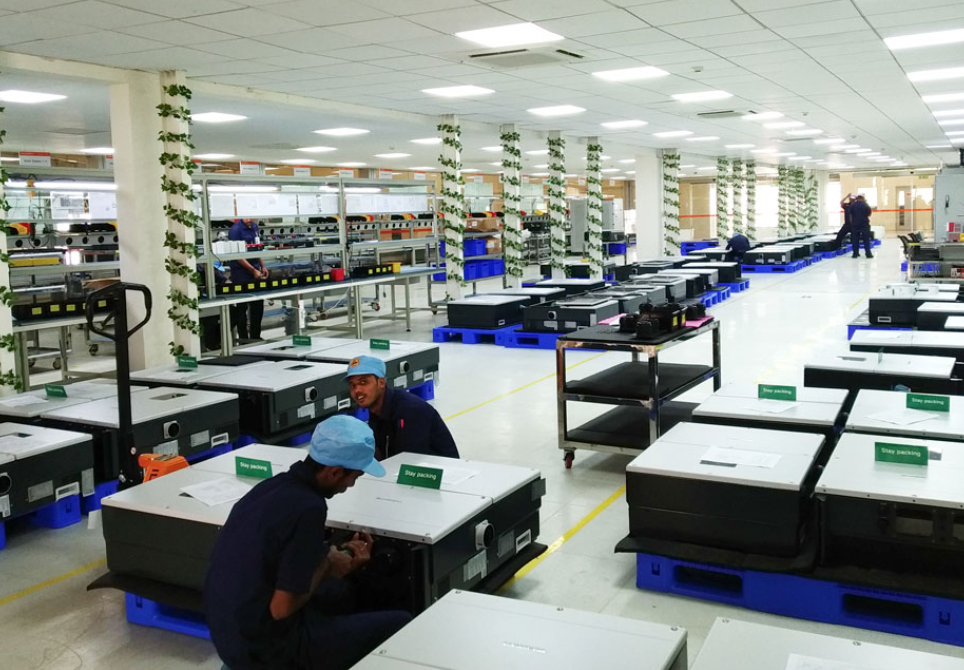
Solar inverter supplier Sungrow will grow its inverter manufacturing capacity in India to 10GW this year.
The announcement was made by Sunil Badesra, Sungrow director for the India market on the back of a consultative webinar with industry stakeholders from the renewable and power sectors this month, attended by Prime Minister Narendra Modi.
Unlock unlimited access for 12 whole months of distinctive global analysis
Photovoltaics International is now included.
- Regular insight and analysis of the industry’s biggest developments
- In-depth interviews with the industry’s leading figures
- Unlimited digital access to the PV Tech Power journal catalogue
- Unlimited digital access to the Photovoltaics International journal catalogue
- Access to more than 1,000 technical papers
- Discounts on Solar Media’s portfolio of events, in-person and virtual
Or continue reading this article for free
Sungrow said it will expand its production capacity at its India facility threefold to reach annual production of 10GW in 2021.
Badesra said the India factory will be “one of the cornerstones in Sungrow’s global strategy to provide the technologically advanced solutions in PV inverter and ESS [energy storage systems] to a wide spectrum of customers in coming times.”
The company’s culminative shipments to India exceeded 7GW by the end of 2020, it said, which was driven by a series of tenders and reverse auctions, and shipped more than 3GW of inverters in one year. Its local production centre in Bengaluru, which was first established in 2018, will cover a total area of 190,000 square feet and could create more than 300 jobs in the area, according to a statement from the company.
The announcement comes after India’s government decided to increase basic customs duty (BCD) on solar inverters to 20% this month, as part of efforts to bolster domestic manufacturing. Finance minister Nirmala Sitharaman also announced that an exemption of customs duty on all items of machinery, instruments, appliances, components or auxiliary equipment for the setting up of solar projects is being rescinded to make manufacturing growth easier for local businesses. The changes follow an announcement from Modi last November that India would offer production-linked incentives for high-efficiency solar modules to help make the country “a global manufacturing hub” in the renewables sector.
Despite the estimated 0.5% increase in project costs, India has also been tipped for a “landmark year” of solar project growth in 2021, with around 9.7GW of utility-scale capacity expected to be commissioned by December, according to new figures from JMK Research and Analytics.
Badesra told webiar attendees that the India factory will “not only be a technological and manufacturing hub, it will also be an important place for skill building, training and job creation for local youths.”
The manufacturer has also launched a new line of inverters designed for India’s residential market, which range from 5kW to 20kW capacity.
